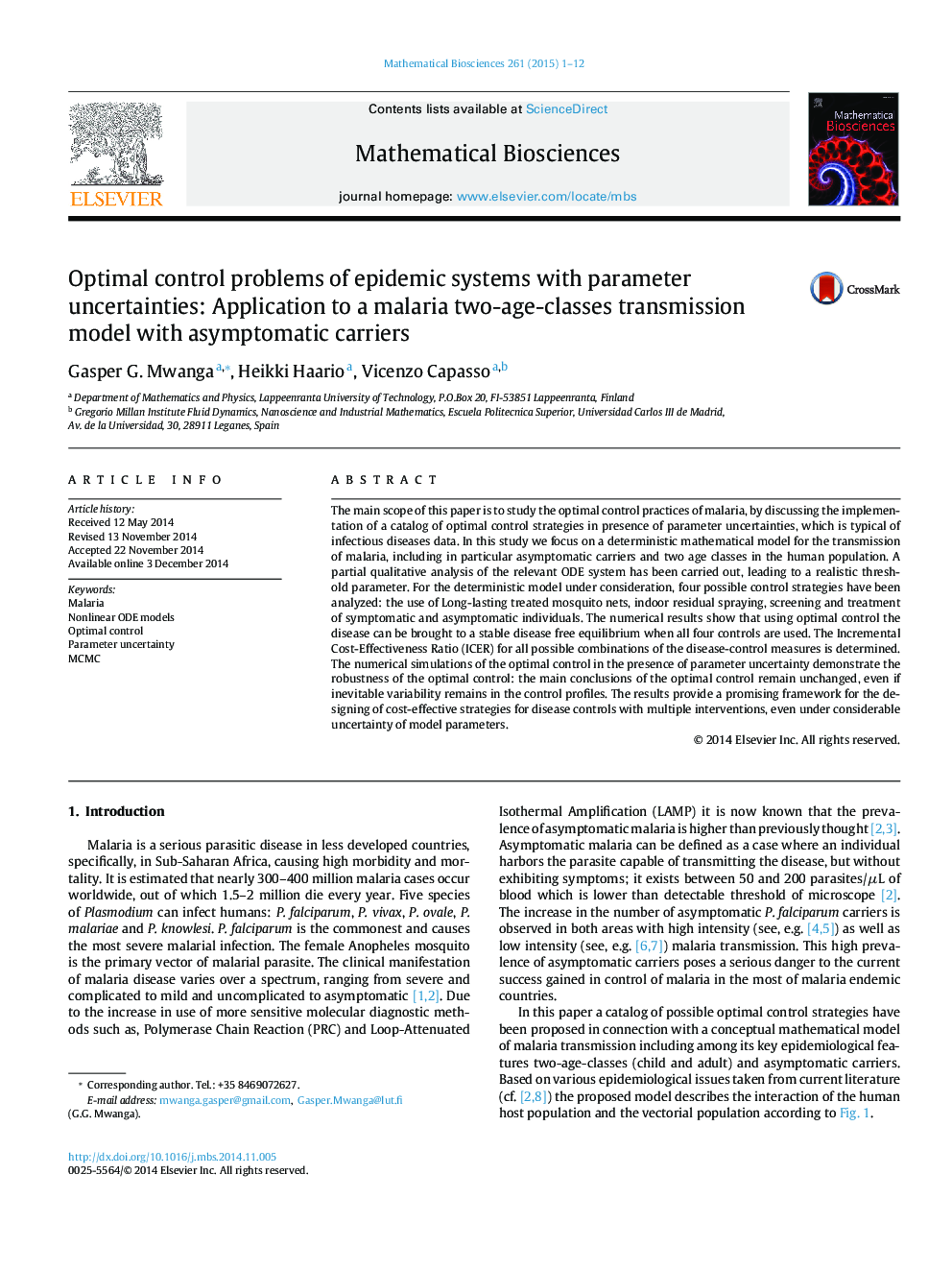| Article ID | Journal | Published Year | Pages | File Type |
|---|---|---|---|---|
| 4499964 | Mathematical Biosciences | 2015 | 12 Pages |
•We model malaria transmission with asymptomatic carriers and two-age human classes.•We examine the qualitative analysis of the relevant ODE system.•We apply the optimal control approach using four malaria intervention controls.•We study the robustness of optimal control in presence of parameter uncertainties.
The main scope of this paper is to study the optimal control practices of malaria, by discussing the implementation of a catalog of optimal control strategies in presence of parameter uncertainties, which is typical of infectious diseases data. In this study we focus on a deterministic mathematical model for the transmission of malaria, including in particular asymptomatic carriers and two age classes in the human population. A partial qualitative analysis of the relevant ODE system has been carried out, leading to a realistic threshold parameter. For the deterministic model under consideration, four possible control strategies have been analyzed: the use of Long-lasting treated mosquito nets, indoor residual spraying, screening and treatment of symptomatic and asymptomatic individuals. The numerical results show that using optimal control the disease can be brought to a stable disease free equilibrium when all four controls are used. The Incremental Cost-Effectiveness Ratio (ICER) for all possible combinations of the disease-control measures is determined. The numerical simulations of the optimal control in the presence of parameter uncertainty demonstrate the robustness of the optimal control: the main conclusions of the optimal control remain unchanged, even if inevitable variability remains in the control profiles. The results provide a promising framework for the designing of cost-effective strategies for disease controls with multiple interventions, even under considerable uncertainty of model parameters.
